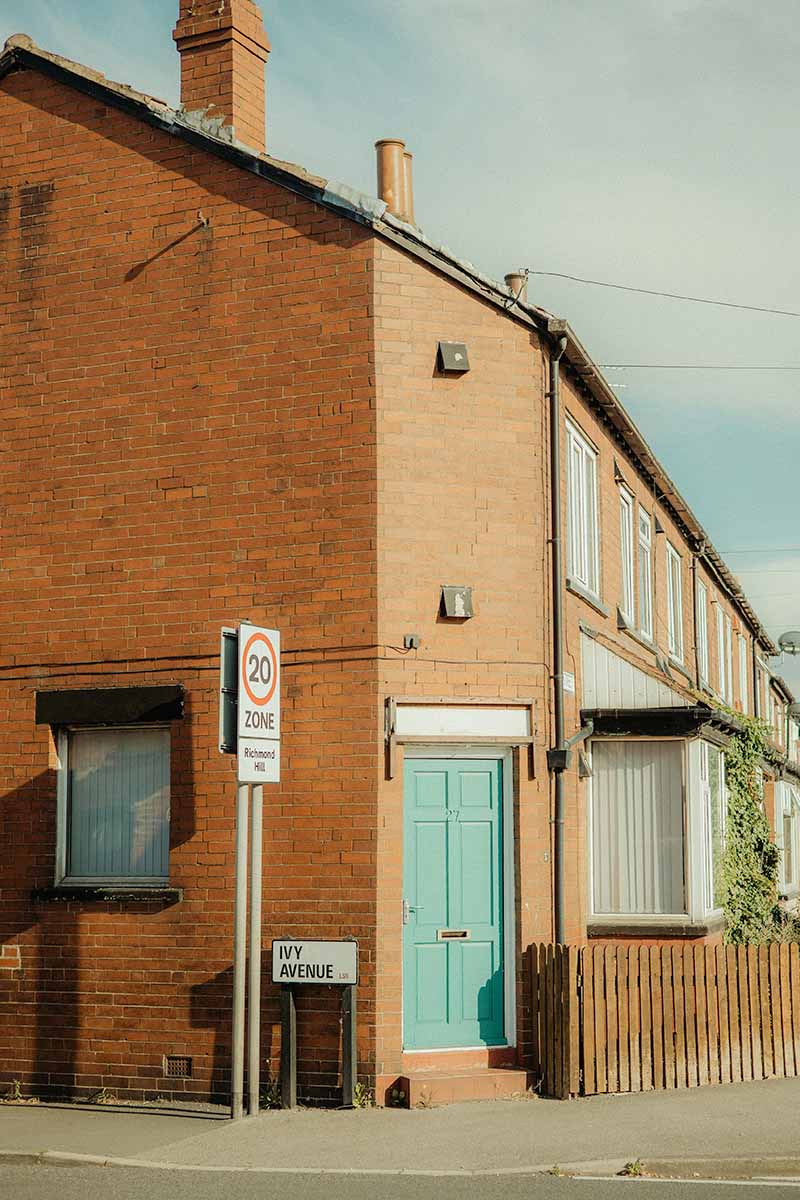Can you be forced to sell your home during divorce?
If you want to remain in your home but your ex-partner is pushing for a sale, it’s natural to ask: can I actually be forced to sell my house in a divorce? The short answer is: yes, the courts do have the power to order a sale — but whether this happens depends on your circumstances. In some cases, the court will delay a sale (for example, to protect children), or allow alternatives such as buyouts or transfers. This guide explores when and how a forced sale can occur, what legal frameworks apply, and what practical steps you can take.
Forced sales in divorce are only ordered when fair and necessary. If you and your ex cannot agree what to do with the home, the courts can decide for you.
- A court can make an order for sale under the Matrimonial Causes Act 1973 (for divorcing couples) or TOLATA 1996 (for cohabiting couples).
- Children’s welfare is the top priority — courts often delay sales until they turn 18 via Mesher or Martin orders.
- Alternatives include buyouts, transfers of equity, or offsetting assets against the home.
- Even if ordered to sell, you still control how — via estate agent, auction, or cash buyer like Habello.

When can the court force a sale?
If negotiation and mediation fail, either party can apply to court. The court has broad powers to decide what happens to marital property, including ordering its sale.
- Married couples – The court acts under the Matrimonial Causes Act 1973.
- Unmarried but cohabiting couples – Disputes over jointly owned property are decided under the Trusts of Land and Appointment of Trustees Act 1996 (TOLATA).
The judge’s key considerations include:
- The housing needs of both parties.
- The welfare of children under 18.
- Each spouse’s financial resources and earning capacity.
- The couple’s contributions to the marriage.
- The principle of fairness — the goal is an equitable settlement, not punishing one side.
If there are no dependent children and both parties need their share of equity, the court is far more likely to order an immediate sale.
What if children or dependants are involved?
Where children are part of the equation, the court gives their welfare the highest priority (Children Act 1989). This often leads to delayed or conditional sales, even if one spouse wants an immediate split of equity.
- Mesher order – postpones the sale until a set trigger, usually the youngest child turning 18 or finishing full-time education.
- Martin order – postpones the sale until the occupying spouse remarries, cohabits, or chooses to leave.
- Special needs cases – if a child, elderly, or disabled dependant relies on the home, the court is unlikely to order an immediate sale.
These orders balance stability for children and dependants with fairness to both spouses.
Ownership scenarios: joint vs sole name
It’s a common misconception that if a property is in one spouse’s name, the other has no rights.
- Jointly owned homes – Neither party can force a sale without the other’s consent, unless a court orders it.
- Solely owned but marital home – Even if only one name is on the title deeds, the house is still classed as a marital asset in divorce and subject to division.
- Unmarried couples – Cohabitees can apply under TOLATA to force or resist sale, but rules differ compared with married couples.
Alternatives to a forced sale
Before forcing a sale, courts and solicitors will explore alternatives, particularly if one spouse wants to remain in the property:
- Buyout – One partner purchases the other’s share, often via remortgaging.
- Transfer of equity – Ownership is legally transferred into one name, with compensation elsewhere.
- Offsetting assets – The home is retained by one spouse, while the other receives a greater share of pensions, savings, or investments.
- Deferred sale – The house remains jointly owned until a set event (children leaving home, remarriage, etc.).
Each option has pros and cons, and legal advice is essential to understand the implications.
Types of court orders for the family home
The court has a range of tools available when deciding the home’s future:
What happens if the court orders a sale?
Once a court issues an order for sale, compliance is mandatory.
The order usually specifies:
- That the home must be placed on the open market within a set timeframe.
- Who remains in the property until completion.
- How the net proceeds (after mortgage and fees) will be divided.
If one spouse refuses to cooperate, the court can appoint a representative to sign documents on their behalf.
Practical issues: mortgages and payments
One of the biggest flashpoints during divorce is when one party stops contributing to the mortgage. Both names on the mortgage = joint liability, regardless of who lives in the home.
If your ex stops paying:
- Inform your lender – they may allow a payment holiday or restructure.
- Keep up payments if you can – missed payments harm both your credit ratings.
- Apply for a Maintenance Order – forcing your spouse to contribute.
- Log all payments – these records may support your position in settlement negotiations.
Selling before divorce is finalised
Even if you want to sell quickly, you cannot simply list and complete a sale without your ex’s agreement. Buyers’ solicitors require proof of vacant possession (that all occupants will leave).
If your spouse refuses to vacate, contracts collapse, and you risk claims of misrepresentation. This is why sales usually wait until after financial settlement or court order.
Legal protections if you’re being pressured
If your ex is trying to force a sale without going through court:
- You can register a Notice of Home Rights (England & Wales) to protect your right to remain in the property until divorce is settled.
- If threats or harassment occur, you can apply for a Non-Molestation Order for protection.
Selling routes if a sale is ordered
If the sale is unavoidable, you still have choices about how to sell.
Habello is particularly useful in divorce scenarios where delays are costly or court deadlines loom.
Save time and hassle by selling your home with us
Get a guaranteed cash offer on any property in England and Wales. All you need to do to get started is enter your address below.
Worked example: equity division
- Property value: £350,000
- Outstanding mortgage: £150,000
- Net equity: £200,000
Split 50/50 = each receives £100,000.
If one spouse buys out the other, they must raise £100,000 (via mortgage or savings).
If the property is sold to a cash buyer for £300,000, the net equity falls to £150,000 — meaning £75,000 each. Lower, but immediate and certain.
Case studies
- Immediate sale ordered – Sophie and Liam divorced with no children. Both needed equity to rehouse. The court ordered an immediate sale. After delays on the open market, they turned to a cash buyer and completed in 18 days.
- Mesher order with children – Amir and Charlotte divorced with two young children. Charlotte stayed in the home under a Mesher order until the youngest turned 18, with Amir’s share protected for later.
- Buyout compromise – Jack wanted to stay; Emma wanted cash out. Jack remortgaged to buy Emma’s share using a RICS valuation, avoiding a sale.
FAQs
Can my ex force me to sell without going to court?
No. Unless both names are on the deeds and you both agree, only a court can order a sale.
What if I refuse to comply with a sale order?
The court can enforce it and even appoint someone to sign on your behalf.
Can I stop my ex forcing a sale before divorce?
Yes. Register a Notice of Home Rights to protect your occupation until settlement.
What if my ex stops paying the mortgage?
You’re both liable. Keep payments up, inform your lender, and seek a Maintenance Order.
What if I believe the property was undervalued?
You can request a RICS valuation, which courts usually accept as authoritative.
Can a spouse in sole name force a sale?
Not automatically. Even sole-owned homes are marital assets in divorce and subject to division.
Is a Habello valuation legally binding?
No, but it provides a fast, realistic benchmark and guaranteed offer.
Recap: Can I be forced to sell my house in a divorce?
Yes — the court has the power to order a sale if it’s the fairest way to divide assets. Whether this happens depends on your circumstances, especially where children or dependants are involved. Alternatives like buyouts or deferred sales are common, but if a sale is unavoidable, you still have choices about how.
Sell with Habello
If you’re facing the prospect of a forced sale during divorce, Habello can help you move forward with confidence:
- Free, no-obligation valuation within 48–72 hours.
- Guaranteed cash offer and flexible completion dates.
- Legal fees covered when using partner solicitors.
- No estate agent fees or risk of a collapsed chain.
Contact Habello today to find out how much you could secure for your home right now.
Property owners are choosing Habello for a faster, easier and less stressful way to sell
Sell your home quickly for cash by accepting an offer just below market value. See how we compare to your other options by using the calculator below.
Related guides
Bring yourself up to speed with our property guides.





































































































